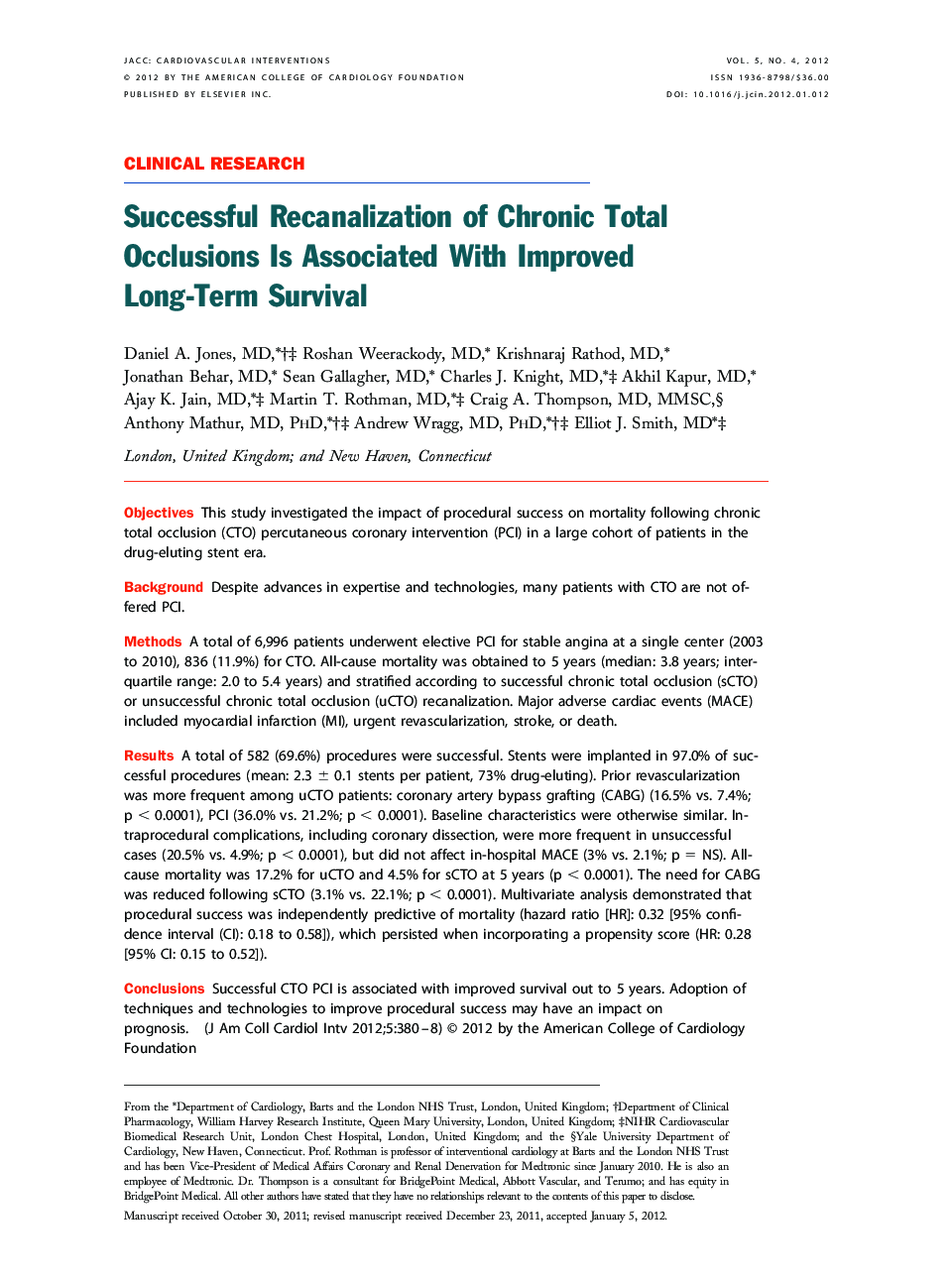| کد مقاله | کد نشریه | سال انتشار | مقاله انگلیسی | نسخه تمام متن |
|---|---|---|---|---|
| 2941485 | 1177073 | 2012 | 9 صفحه PDF | دانلود رایگان |

ObjectivesThis study investigated the impact of procedural success on mortality following chronic total occlusion (CTO) percutaneous coronary intervention (PCI) in a large cohort of patients in the drug-eluting stent era.BackgroundDespite advances in expertise and technologies, many patients with CTO are not offered PCI.MethodsA total of 6,996 patients underwent elective PCI for stable angina at a single center (2003 to 2010), 836 (11.9%) for CTO. All-cause mortality was obtained to 5 years (median: 3.8 years; interquartile range: 2.0 to 5.4 years) and stratified according to successful chronic total occlusion (sCTO) or unsuccessful chronic total occlusion (uCTO) recanalization. Major adverse cardiac events (MACE) included myocardial infarction (MI), urgent revascularization, stroke, or death.ResultsA total of 582 (69.6%) procedures were successful. Stents were implanted in 97.0% of successful procedures (mean: 2.3 ± 0.1 stents per patient, 73% drug-eluting). Prior revascularization was more frequent among uCTO patients: coronary artery bypass grafting (CABG) (16.5% vs. 7.4%; p < 0.0001), PCI (36.0% vs. 21.2%; p < 0.0001). Baseline characteristics were otherwise similar. Intraprocedural complications, including coronary dissection, were more frequent in unsuccessful cases (20.5% vs. 4.9%; p < 0.0001), but did not affect in-hospital MACE (3% vs. 2.1%; p = NS). All-cause mortality was 17.2% for uCTO and 4.5% for sCTO at 5 years (p < 0.0001). The need for CABG was reduced following sCTO (3.1% vs. 22.1%; p < 0.0001). Multivariate analysis demonstrated that procedural success was independently predictive of mortality (hazard ratio [HR]: 0.32 [95% confidence interval (CI): 0.18 to 0.58]), which persisted when incorporating a propensity score (HR: 0.28 [95% CI: 0.15 to 0.52]).ConclusionsSuccessful CTO PCI is associated with improved survival out to 5 years. Adoption of techniques and technologies to improve procedural success may have an impact on prognosis.
Journal: JACC: Cardiovascular Interventions - Volume 5, Issue 4, April 2012, Pages 380–388